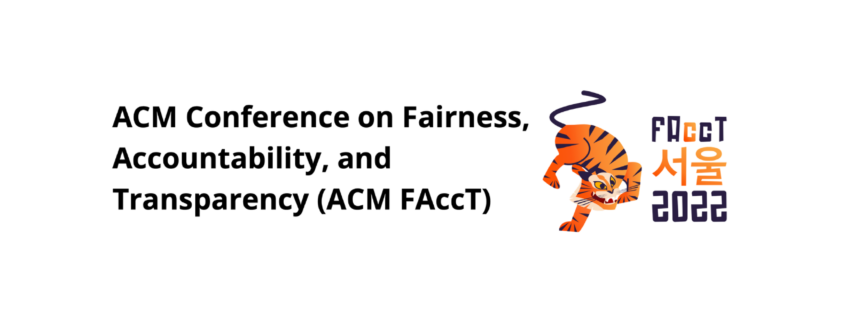ACM FAccT Conference & Doctoral colloquim
The fifth annual ACM FAccT conference brought together individuals interested in fairness, accountability, and transparency in socio-technical systems. It was held in-person in Seoul, South Korea and online from June 21-24 2022.
Both ESR Xengie Doan attended the conference in person, along with Marietjie Botes from the University of Luxembourg who presented a paper. Xengie applied and was selected to attend the doctoral colloquium.
The doctoral consortium took place in the morning of the 21st. Professor Seth Lazar, with a philosophy background, and Professor Michael L. Littman, with a Computer Science background, began with a conversation about interdisciplinary research. Then, Professor Lazar gave a short introduction of his paper, “Legitimacy, Authority, and the Political Value of Explanations” and ended with valuable insights he learned from doing interdisciplinary research: 1) Don’t focusing too much on trying to have one uber definition to rule them all; 2) beware of false friends in two fields that have fundamental differences. Then the session opened to a Q&A session. Some relevant questions were asked about how to legitimize interdisciplinary research, how to find opportunities, and the mindset to approach research.
After that, the participants had lunch roundtables with mentors, all of whom were distinguished figures in their field. Some were renown professors, some had just spoken on a panel earlier in the day, or some had just found out they won a Distinguished Paper Award at the conference. The mentors were all incredibly kind and willing to give their lunchtime to speak with students.
Following a mentor roundtable, students were put into peer roundtables generally based on topics. Due to my research involving health data, I was put into a group with other PhD students working on health data. There were students in law, AI, and more. We ended up sharing out thesis topics and common issues we were dealing with, such as the opaqueness of ML decisions, the complexity of health data, the overhyping of AI for marketing, and more.
Overall, the FAccT doctoral consortium was a valuable experience that allowed me to meet individuals working on many different fields. It helped me become more knowledgeable and confident working on an interdisciplinary thesis with elements of computer science, privacy, health, and Human Computer Interaction.





